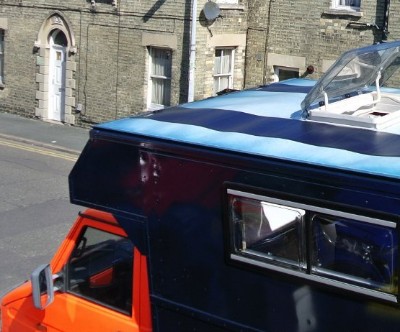Choosing solar panels for a motorhome or caravan
Finding a mains charging point to charge your batteries every other day, seriously restricts your freedom. Imagine all the beautiful, wild places you could stay if, instead of relying on the national grid for your power, you obtained some, or all, of your energy from the natural power of the sun and/or wind?
To make a significant contribution to the energy needs of a caravan or motorhome, you probably need a panel of at least 50 watts power output. In summer, a panel of that size should provide enough electricity for lighting, water pump and a radio. If travelling earlier or later in the year when there is less light available, a bigger panel may be necessary. If you are running a fridge or a television, you should consider installing several panels as these appliances can be very power hungry.
Framed panels such as the large and small ranges are the most cost-effective panels for a given output. They can either be left unfixed and plugged in when necessary, or mounted permanently on the roof.

If you have to leave your caravan or motorhome for long periods, you might want to fit a small solar panel to keep the battery topped up, as batteries do tend to self-discharge over time. As a result, discharged batteries soon become sulphated and lose their capacity. The Victron range of rigid-frame solar panels are ideal for this job, and come in a range from 30 to 215 Watt sizes. Alternatively, you can opt for a flexible panel (see photo), that will gently bend to fit to a caravan roof. They can be mounted either using the 4 grommet holes in some panel corners, or by gluing down the panels.
If you are interested in charging both your engine and leisure battery from the same solar panel, this is popular with our "DuoRacer" dual solar charge controllers.